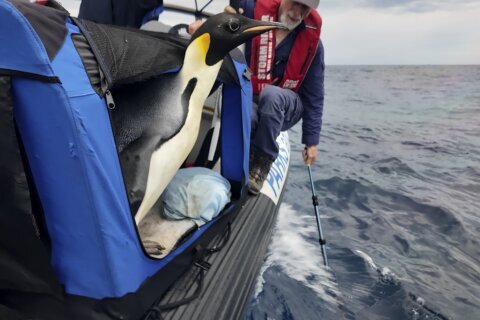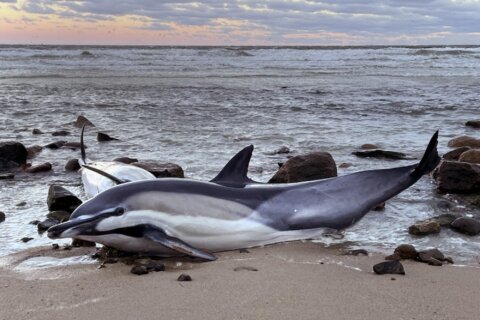TOKYO (AP) — Japan has asked Denmark to extradite anti-whaling activist Paul Watson, who has been in custody in Greenland since his arrest last month under a Japanese warrant, officials said Friday.
Watson, a 73-year-old Canadian American citizen, is a former head of the Sea Shepherd Conservation Society, whose high seas confrontations with whaling vessels have drawn support from celebrities and even featured in the reality television series “Whale Wars.”
Japan’s coast guard sought his arrest over an encounter with a Japanese whaling research ship in 2010 when he was accused of obstructing the crew’s official duties by ordering the captain of his ship to throw explosives at the whaling ship. He was sought in an Interpol red notice, and the perpetrator, a New Zealand citizen, was convicted of assault and given a suspended prison term allowing him to leave Japan.
Environmental activists have criticized Japan’s practice of research whaling as a cover for commercial whale hunting.
Japan’s government asked Denmark authorities on Wednesday to hand over Watson so he could be tried in Japan, said Masashi Mizobuchi, assistant press secretary of Japan’s foreign ministry. Greenland is an autonomous territory of Denmark.
Japan will continue to take appropriate measures, including making necessary efforts to call on cooperation from related countries and organizations, the official said. Mizobudhi said Denmark has not responded to Japan’s request and declined to comment on the prospects for a handover.
Watson was arrested on July 21 when his ship docked in Nuuk, Greenland’s capital, according to the local police. Greenland courts have approved his detention in Nuuk until Aug. 15.
Japan does not have an extradition treaty with Denmark and it is unknown if or when Watson would be handed over.
Watson left Sea Shepherd in 2022 to set up his own organization. The Captain Paul Watson Foundation said at the time of his arrest that the action was politically motivated and called for his release.
Watson was detained in Germany in 2012 on a Costa Rican extradition warrant but skipped bail after learning that he was also sought for extradition by Japan, which has accused him of endangering whalers’ lives during his operations in the Antarctic Ocean. He has since lived in countries including France and the United States.
Japan’s government argues whale meat is part of Japan’s food culture and supports the sustainable use of whales. Japan withdrew from the International Whaling Commission in 2019 and has since resumed commercial whaling within its exclusive economic zone.
Copyright © 2024 The Associated Press. All rights reserved. This material may not be published, broadcast, written or redistributed.







